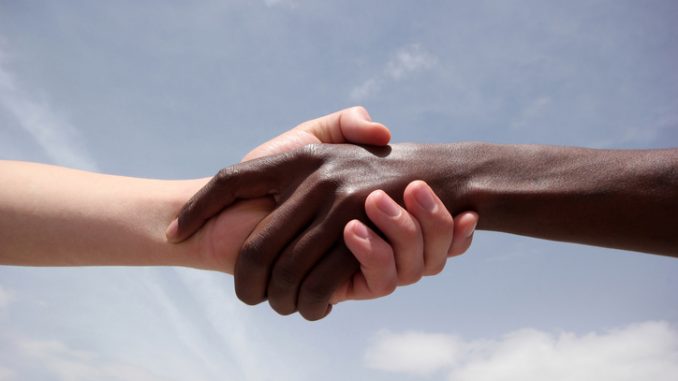
by Lily Zheng
Most leaders of big corporations outwardly support diversity and inclusion efforts. But in my work as a Diversity & Inclusion consultant, I frequently get a behind-the-scenes look at how leaders truly feel and a surprising number of people — from line managers to C-Suite executives — express notedly less enthusiastic opinions in private.
“It seems like I’m not wanted in the room when D&I conversations start happening,” one person told me. “It feels like I’m part of the problem,” another said in frustration. And a third, in a rare admission of a common sentiment said: “It seems like everyone is out to get the white guys.”
According to the White Men’s Leadership Study, a study of white men and diversity and inclusion, the single biggest challenge to engaging in D&I efforts — as noted by almost 70% of white men surveyed — is knowing whether they are “wanted.” This may sound like an unfounded sentiment to D&I practitioners who make great efforts to involve leaders in their initiatives, but rather than dismiss this reluctance it would be far better to understand how and why it happens. Understanding root causes will allow us to figure out how to make leaders into allies, not enemies.
Why Some Leaders Feel Defensive
Even innocuous comments that identify the existence of identity-based discrimination may land very differently with different people. For individuals who have experienced marginalization, these comments can feel empowering, giving voice to their experiences. Others may respond empathetically, even if they haven’t had the specific experience referenced. But for some people, especially those who have never faced marginalization for their identities, these comments can land the wrong way. Why?
One of the functions of privilege is rarely having to think about privileged identities as “identities.” In America, historical power inequities make it so women, people of color, religious minorities, disabled people, and LGBTQ+ people are constantly reminded of their differences while men, white people, able-bodied people, straight people, and cisgender people can go their entire lives without thinking actively about their masculinity, whiteness, abled bodies, heterosexuality, or cisgender status. For privileged leaders, seemingly innocuous workplace comments can be some of the first times they explicitly think about their race, gender, or sexuality. These leaders may hear mentions of a group they belong in, find those parts of their identities more salient than ever, and sensing critique, get defensive.
Take these examples. When a woman says, “A man catcalled me the other day at work,” a white man in the audience might sit up a little straighter, thinking consciously or subconsciously, I’m a man, and my group is being attacked! If someone asserts that, “White fragility makes hard conversations about race even harder,” a white person might think, I’m white and being characterized as “fragile” is offensive! Or when a queer person admits, “My teammates hurt me when they assume I’m straight like them,” their colleague might think, I’m straight, is that supposed to be my fault?
To read this article in its entirety at Harvard Business Review, click here.
